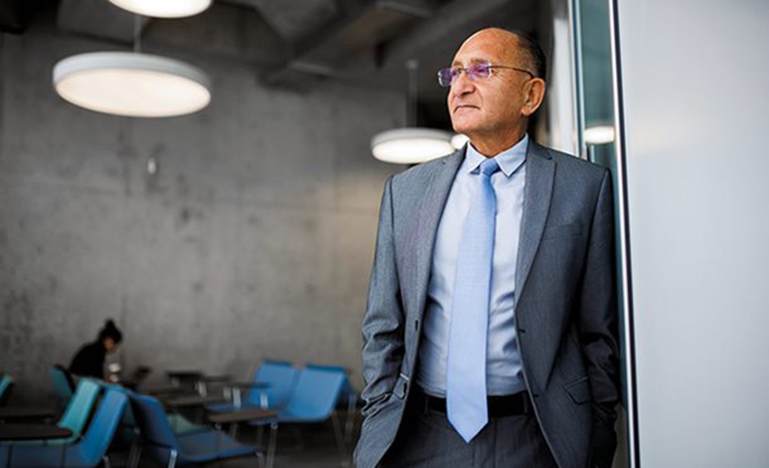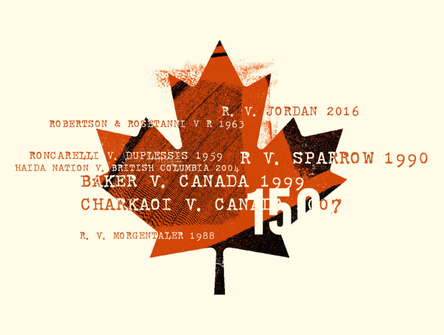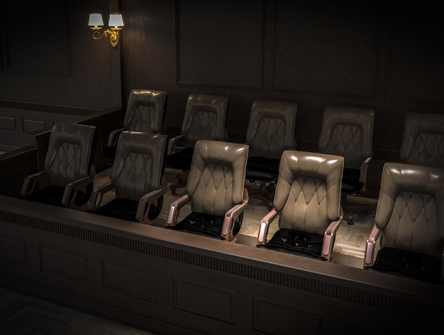Q&A with Anver Saloojee: Ryerson takes on legal education
Ryerson University has ruffled a few feathers with its proposal for a new law school. Law Society of Ontario has approved its program, but some observers wonder whether there’s room for a new law school – and jobs for the additional graduates it would produce.

CBA National asked Professor Anver Saloojee, dean of record for Ryerson’s proposal, to elaborate on the school’s plans.
CBA National: Does Ontario – or Canada for that matter – really need another law school?
Anver Saloojee: Absolutely yes and in particular one that focuses on equity diversity and inclusion, on technological innovation and on access to justice. Ryerson intends to produce graduates whose nimbleness and ability to compete in new ways will enhance access to justice in the province. Technology is creating new opportunities in the legal sector with the legal industry on the cusp of transformation driven by the application of technology to legal work in ways previously not imagined. And the Greater Toronto Area is rapidly emerging as one of the legal innovation clusters in the world.
N: Many law schools are taking an innovative approach to legal education with experiential learning (Lakehead), a focus on entrepreneurial skills (Calgary) and new technology (Ottawa, Montreal). What would be unique about Ryerson’s approach?
AS: We salute the innovations being pursued by other law schools and we will definitely build on what they have done. However Ryerson’s approach is distinctive for several reasons. While other schools are incorporating some elements related to experiential learning, entrepreneurism and new technology in their curricula, none is doing so in the thoroughgoing fashion foreseen by our proposed curriculum and instructional methods. All graduates will have shared a full two years of coursework that emphasizes all of the innovations mentioned above.
N: Would the school aim to attract a different kind of student?
AS: Our proposed admissions procedures are meant to provide pathways for non-traditional applicants. Ryerson would welcome applications from students who demonstrate technological proficiency, past entrepreneurial activities, problem solving, community engagement, social innovation and/or the ability to overcome adversity due to a range of possible factors.
N: Why do we need more law school graduates in an already tight legal job market?
AS: In our broad consultations in the legal sector we heard one constant challenge – train potential lawyers differently so that those who will practice law will be “practice ready”. Currently there is a tight job market for traditional lawyers. However, studies of the job market for Ontario graduates show that conditions can change over time. In any case, conditions in the job market for traditional lawyers do not provide a complete picture of employment prospects for future graduates. There is a significant demand for differently trained lawyers in a wide range of sectors. The graduates will come out with skill sets that will enable them to enter a wide range of professions. These could well be ‘legal knowledge engineers’, ‘legal knowledge consultants’, ‘legal technologists’ and ‘legal process analysts’.
N: How would the school advance goals of access to justice, diversity and inclusion?
AS: The proposed program will give students the chance to deal proactively with access to justice issues. Mandatory courses include technology and process innovation, coding and its legal uses, the personal skills needed for working in diverse contexts, customizing the legal supply chain in new and innovative ways, legal project management, legal analytics and legal process engineering, and the evaluation of possible ways of overcoming barriers to justice.
Ryerson’s commitment to diversity and inclusion will be reflected in the proposed admissions process. We will be an attractive option especially for applicants based in the GTA who would prefer to live at home to reduce costs. Ryerson also plans to actively recruit applicants from underrepresented communities with admissions representatives visiting community groups, high schools and other organizations. In addition, ethno-racial law associations are being asked for their assistance in promoting the Ryerson Law School in their respective communities.
We also intend to encourage applications from persons with diverse backgrounds, relevant life and work experiences, community affiliations, passion for justice, and openness to technological innovation.
This interview was edited and condensed for publication.


